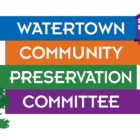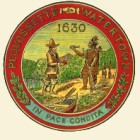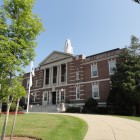Around Town
Community Preservation Committee Wants to Hear from Public
|
The following information was provided by the Community Preservation Committee:
The Community Preservation Act (CPA) in Watertown raises funds through a 2% percent surcharge on local property taxes and a variable annual distribution from the MA Community Preservation Trust Fund. There are four eligible project funding categories: community housing; open space; outdoor recreation; and historic preservation. It is mandated that 10% of funds generated annually must be designated to each category. Please note funding for open space and recreation is a combined category. Up to 5% may be used for administration and the remaining 65% may be allocated among the project categories.



